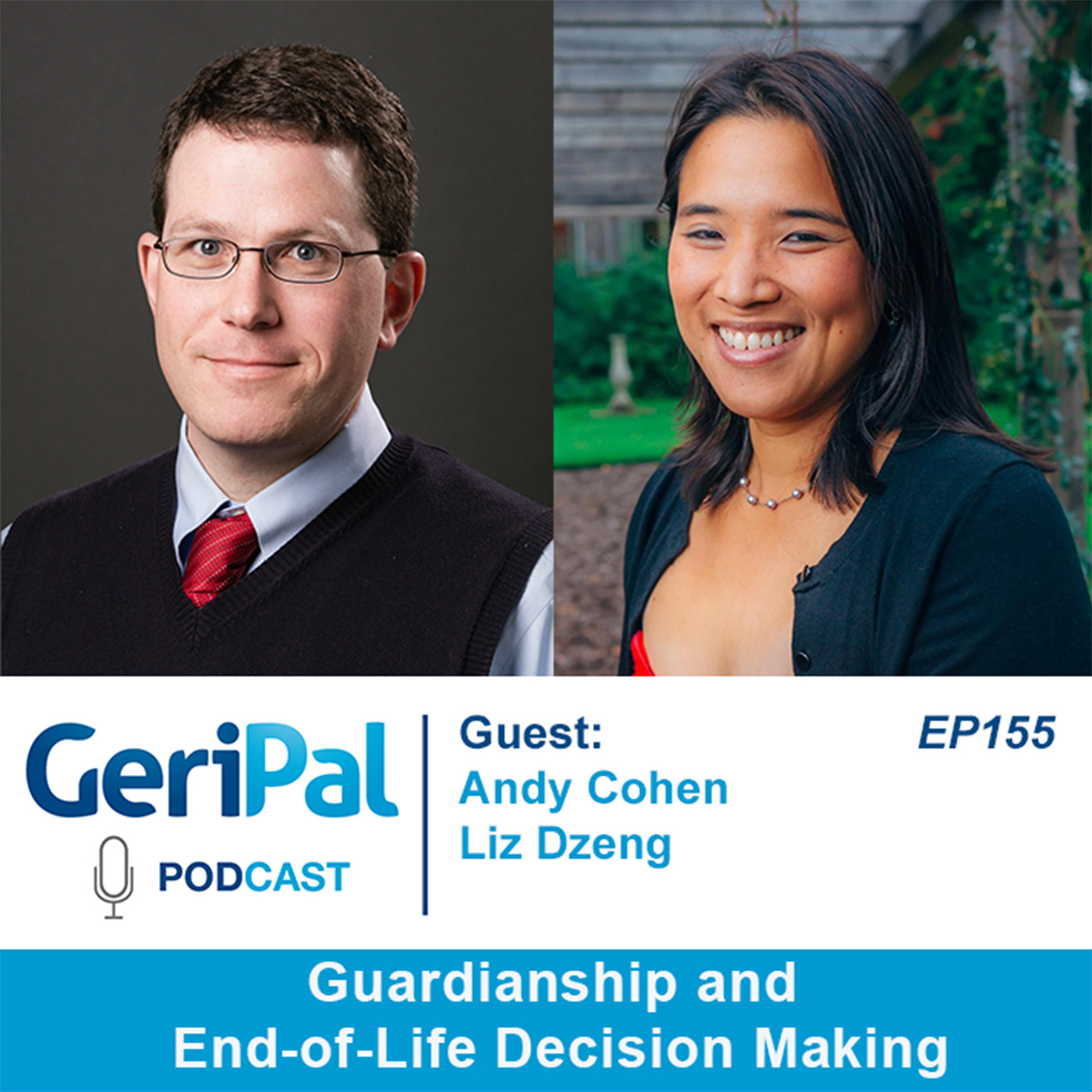Guardianship and End-of-Life Decision Making: A Podcast with Andy Cohen and Liz Dzeng

b'
Surrogate decision\\u2010making around life-sustaining treatments in the hospital even in the best of circumstances is hard. \\xa0 It\\u2019s maybe even harder when caring for those who are conserved or have a professional guardian.\\xa0 The conservator may not have known the patient prior to them losing capacity, they may not know their values or goals that can help guide decisions, and they may be restricted by state statutes on what decisions they can make without getting a judge\'s approval.\\xa0\\xa0
The prevailing wisdom is all of the barriers to decision making while under guardianship likely leads to delays in decision making or one that errs on choosing high\\u2010intensity treatment even if it is unlikely to benefit the patient.\\xa0 But is that really the case?\\xa0\\xa0\\xa0
On today\'s podcast, we talk with Andy Cohn, lead author of a recent Journal of the American Geriatrics Society (JAGS) paper titled \\u201cGuardianship and End\\u2010of\\u2010Life Care for Veterans with Dementia in Nursing Homes\\u201d and Liz Dzeng, the lead author of the accompanying editorial to the paper.\\xa0\\xa0\\xa0
The big surprise finding of this study was veterans who were nursing home residents aged 65 and older with moderate to severe dementia and who had a professional guardian were no more likely to receive high\\u2010intensity treatments than the same population who died with decision makers who were not professional guardians. \\xa0 We talk to Andy about his study, potential reasons behind the study, and what, if anything, we should do differently knowing these results. \\xa0 We also talk to Liz about whether substituted judgement is really all that it\\u2019s cracked up to be.
So take a listen and also check out these articles to read more about it:
'